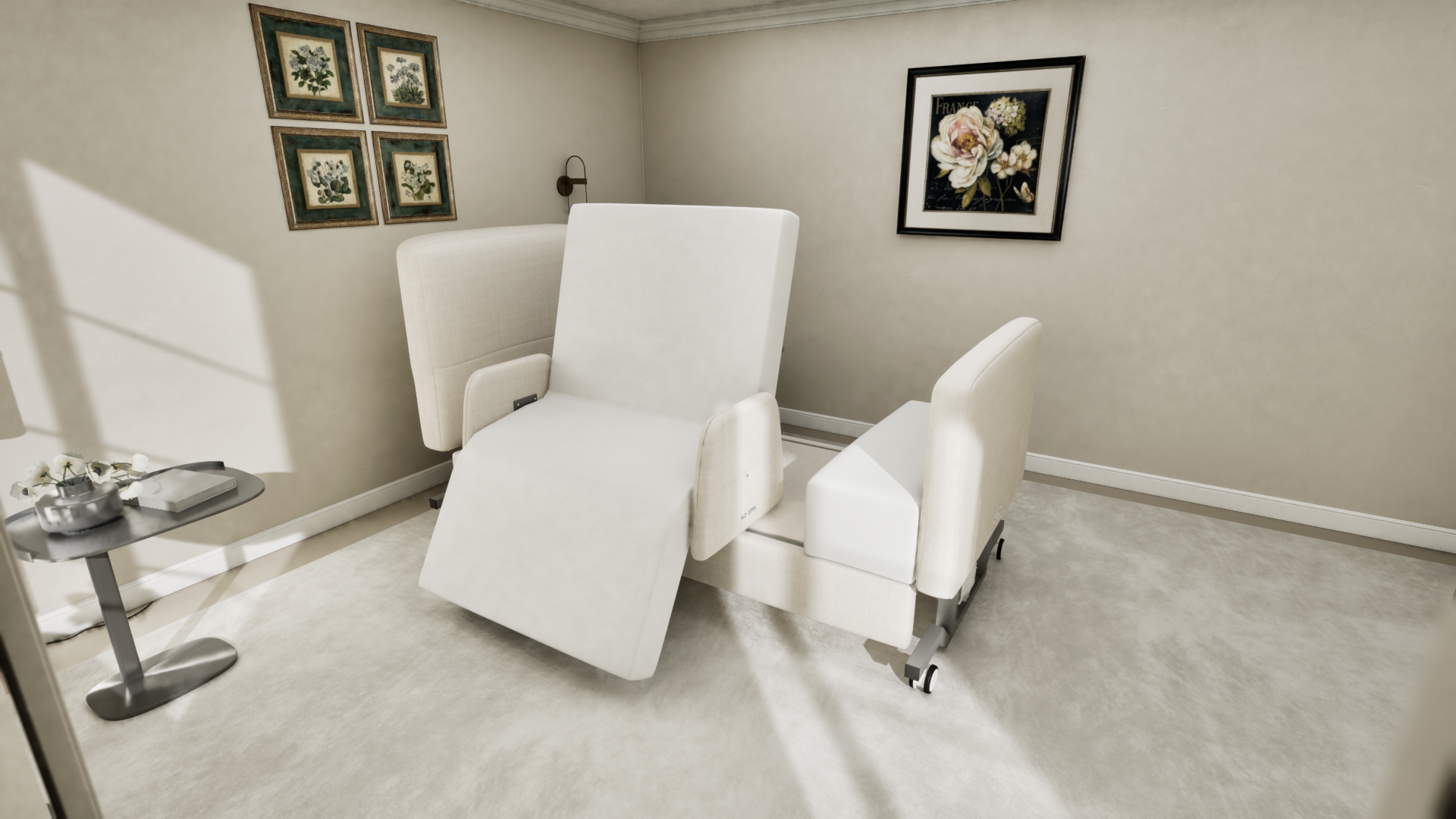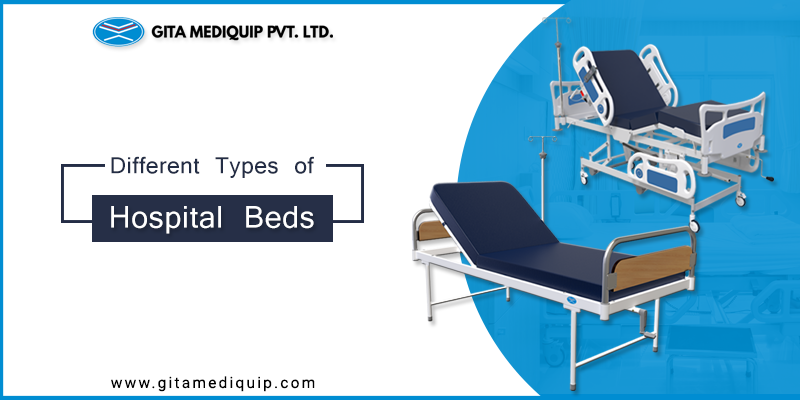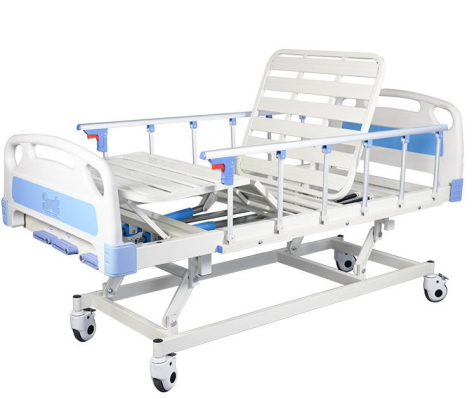Indicators on Hospital Beds For Home Use You Should Know
Excitement About Hospital Beds For Home Use
Table of ContentsThe Definitive Guide to Hospital Beds For Home UseThe Only Guide to Hospital Beds For Home Use8 Simple Techniques For Hospital Beds For Home UseWhat Does Hospital Beds For Home Use Mean?A Biased View of Hospital Beds For Home UseSome Known Factual Statements About Hospital Beds For Home Use The Facts About Hospital Beds For Home Use Revealed
There are 3 primary sorts of health center beds: manual, semi-electric, and fully-electric. Even more types of medical beds exist and they are detailed below. These beds make use of hand cranks to adjust the bed's elevation and increase and decrease the head and the foot. Hand cranks are normally discovered at the foot of the bed and call for a person that is physically with the ability of operating.
Semi-electric beds have an electrical motor to raise and decrease the head and foot sections of the bed (hospital beds for home use). Full-electric beds have an electrical motor that can raise the head and foot sections of the bed as well as the entire elevation and positioning of the bed.
Hospital Beds For Home Use - The Facts
There are numerous types of healthcare facility beds, each designed to satisfy specific client demands. Below are some common kinds: This is the most typical kind of healthcare facility bed, made for general medical usage.
Reduced to the ground than a common bed. This type of bed is developed for bigger patients, with a larger structure and higher weight ability than a basic bed. This kind of bed is made particularly for youngsters, with smaller sizes than a common bed. Unique functions such as full length side rails and animation design.
This sort of bed is made for critically unwell people that call for open monitoring and specialized clinical tools such as ventilators and mixture pumps. This sort of bed is made for use during labor and distribution, with adjustable settings and functions to support the mother and child during the birth process.
Facts About Hospital Beds For Home Use Uncovered
Multiple feature and the devices carry out broadening grip to various parts of the vertebra and the extremities without relocating the body. These are simply a couple of examples of the kinds of healthcare facility beds available. The certain type of bed utilized will certainly depend on the individual's problem, clinical needs, and various other aspects.
Here is the point you need to recognize. A one-function health center bed is a clinical bed that enables a patient to move only the head or foot section up or down. A 2 feature health center bed usually refers to a kind of clinical bed that has 2 adjustable features to aid patients in health centers or treatment facilities.

The Ultimate Guide To Hospital Beds For Home Use
A 7-function ICU bed is a sort of medical bed that supplies numerous adjustable functions to support seriously unwell clients in an extensive treatment system (ICU) (hospital beds for home use). The 7 features generally include: Backrest adjustment: The back-rest can be adapted to numerous angles to help the person stay up or relax comfortably
Elevation adjustment: The bed can be raised or lowered to make it easier for clients to enter and out of bed, and Get the facts for caregivers to offer care. Trendelenburg placement: The whole bed can be slanted to advertise blood circulation and blood circulation in the body. Reverse Trendelenburg placement: The bed can additionally be tilted in the opposite direction to promote blood circulation and circulation in the top body.
While more affordable than electrical designs, these beds require exertion for changes. The primary advantages of hand-operated beds are their cost and integrity, as they don't rely on electricity. The need for hand-operated effort can be a constraint in scenarios where quick adjustments are needed or where caretakers deal with physical a fantastic read difficulties.
Hospital Beds For Home Use for Beginners
Semi-electric health center beds supply an equilibrium of handbook and electrical controls. These beds give an excellent center ground between guidebook and totally electrical choices, using ease of use without the full cost of electric designs.
Semi-electric beds are fit for people that require moderate adjustments to the head and foot areas yet can handle without frequent height changes. This makes them a cost-effective solution for those looking for comfort and benefit without the need for consistent repositioning. Fully electric health center beds include electrical controls for seamless modifications to the height, head, and foot areas.
Specialty hospital beds, such as ICU beds, long-lasting care beds, and bariatric beds, are meticulously created to attend to details clinical needs. These beds supply tailored take care of diverse person groups, improving both end results and convenience. In the complying with sections, we will certainly explore the main kinds of specialty hospital beds, describing their certain benefits and applications.
With years of experience in manufacturing electric straight actuators - hospital beds for home use and close partnership with the linked here healthcare industry, TiMOTION is well-positioned to provide reputable health care remedies. Our vertically incorporated business takes care of every step of the production process, from layout to actuator assembly, ensuring we deliver outstanding worth and personalized services customized to your particular requirements
Our Hospital Beds For Home Use PDFs

To read more about incorporating these technologies right into your items, contact us today. More reading:.
Data is sourced from the Medicare Price Record.

Excitement About Hospital Beds For Home Use
A healthcare facility bed is a bed made especially for medical purposes. It is not only a place for patients to relax, yet likewise a system for clinical procedures. Unlike common home beds, healthcare facility beds normally have flexible functions, which can promote clinical staff to make various adjustments according to the needs of people, such as altering the height, disposition, and support angle of the back and legs of the bed.